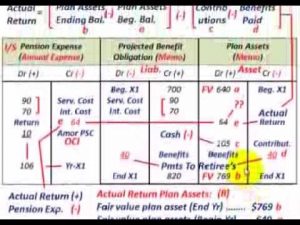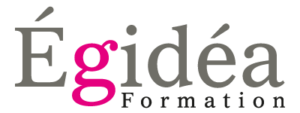
There is no shortage of accounting books written for small business owners with no background in accounting or finance. Titles worthy of consideration include Financial Statements by Thomas R. Ittelson, Small Time Operator by Bernard B. Kamoroff, and Accounting Made Simple by Mike Piper. Discover the top small business accounting books that can help you learn to take control of your business’s finances. As a small business owner, having a solid grasp of accounting principles is vital. Hughes’ guide is designed to be your one-stop reference, providing detailed explanations and practical examples to simplify complex accounting concepts and practices. Explore Xero accounting software and its tools for small businesses, accountants, and bookkeepers.
Accounting for Non-Accountants: Financial Accounting Made Simple for Beginners by Wayne Label
With expert insight and clear instructions, it simplifies the process of setting up and navigating through QuickBooks Online, helping businesses effectively manage their finances. Having fun with your business’ financials and considering going right into the accounting field? This guide is an invaluable resource for those preparing for the CPA Financial Accounting & Reporting Exam. It demystifies the exam’s challenging content, offering crucial tips, and practice questions to aid in mastering the material needed to pass the test confidently. In this transformative guide, Michalowicz presents a counterintuitive financial strategy that supports small business owners in their quest for profitability from their first day of business.
- Typically, checking accounts also come with a debit card for easy access to funds.
- If you are a business owner often facing tax and legal questions, you should get no book besides “The Tax & Legal Playbook” by Mark Kohler.
- By keeping your books organized and up-to-date, you can take control of your finances and make smart business decisions.
- Sometimes, people freeze up at the mention of a net income statement or cash flow report.
Try accounting software for everyday business
If you’re in search of a straightforward, jargon-free guide to accounting principles, “Accounting Made Simple” is your go-to resource. Its streamlined approach makes it an invaluable tool for small business owners and anyone interested in learning accounting’s essentials. Accounting, on the other hand, takes the information provided by bookkeeping and analyzes it to provide insights and reports. Accountants interpret, classify, analyze, report, and summarize financial data. They also handle financial statements, file tax returns, and advise on financial strategy.
Features that make small business accounting less of a burden
Next, check out our article on the best bookkeeping books for small business. As a result, you can set up bookkeeping and accounting systems that are efficient and easy to manage. Plus, you’ll know the key terms and better understand your financial performance overall. Sometimes, people decision making framework freeze up at the mention of a net income statement or cash flow report. Author Dawn Fotopulos seeks to demystify these topics using simple language. This book may not be for a future CPA, but it’s a welcoming way for a small business entrepreneur to learn the basics of bookkeeping.

For example, if you receive payment for a service in January, you record the income in January, even if the service was provided in December. Similarly, if you pay for office supplies in February, you record the expense in February, regardless of when you actually used the supplies. download blank balance sheet templates The next step is to decide between single-entry and double-entry bookkeeping systems. Tracking your AR, usually with an aging report, can help you avoid issues with collecting payments. Understanding your AR can also help you set efficient credit terms for your customers.
This will give you a clear picture of your business’s past financial performance and help you make realistic projections for the future. The first step you’ll need is a business bank account, which allows you to keep your personal and business expenses separate. Bank accounts allow businesses to safely store their money and make transactions easily.
Like the cash-basis method, you record income when you receive it, and record an expense when you make a payment. Since your software for accounting is connected to the cloud, they can use their own login to access reports like the general ledger, balance sheet, or cash flow statement whenever they need. Learn to create meaningful reports and assess your business’s financial health using revenue, expenses, profits, and cash flow. Business transactions are recorded in a journal (also known as Books of Original Entry) in a chronological order using the double-entry bookkeeping system. Accounting for small businesses is done by keeping a complete record of all the income and expenses and accurately extracting financial information from business transactions. Though often confused for each other, there are key differences between bookkeeping and accounting.
If you’re looking to grasp the intricacies of cost accounting without getting overwhelmed, this book is the perfect starting point. Whether you are a student, a small business owner, or an aspiring accountant, Boyd’s straightforward and practical approach makes cost accounting accessible to everyone. Kenneth W. Boyd provides a straightforward guide to understanding the fundamental aspects of cost accounting. His book offers invaluable insights and practical advice, breaking down the complex facets of cost accounting into digestible and actionable information. For anyone new to QuickBooks Online or seeking to enhance their skills, this book is a valuable resource. It allows businesses to efficiently track income, expenses, and other financial data, ultimately providing a clearer picture of their financial health.
Engage with him further on LinkedIn, Twitter, or his personal website. Simon Litt is the editor of The CFO Club, specializing in covering a range of financial topics. His career has seen him focus on both personal and corporate finance for digital publications, public companies, and digital media brands across the globe.
Engage further with Kenneth on LinkedIn or visit his company website for additional insights and resources. « Understanding the ‘language of business’ is essential for all future entrepreneurs, and this book makes learning enjoyable and easy. » With what is rendered in accounting chron com a fresh take on financial strategies, this book is an invaluable resource for entrepreneurs at any business stage. It’ll help you forever view your business’s finances in a new light, leading to enhanced profitability and financial security.
Fotopulos’s guide walks you through the fundamentals of small business accounting in easy-to-understand terms. From profit-and-loss statements to balance sheets and cash flow forecasts, this book will empower you with the knowledge required to take control of your business’s financial health. Think of bookkeeping as the detailed management of your business finances. Whether you’re making a sale, paying bills, or transferring money between bank accounts, bookkeeping keeps track of every financial move. While cash basis may be easier to use, most businesses choose the accrual basis accounting for recording transactions.
These charts have to be updated often to include various business transactions. When you start a business, open a separate business bank account that will keep your business finances separate from your personal ones. Once the adjusting entries are made, an adjusted trial balance must be prepared. This is done to test if the debits match the credits after the adjusting entries are made. This is the final step before the preparation of the business’ financial statements. Individuals who are successful bookkeeping professionals are highly organized, can balance ledgers accurately, have an eye for detail and are excellent communicators.
The cash-basis method only uses cash accounts (e.g., expense, income, etc.). An expert can guide you through QBO setup and answer questions based on the information you provide; some bookkeeping services may not be included and determined by the expert. For more information about Expert Assisted, refer to the QuickBooks Terms of Service.



Leave a Comment